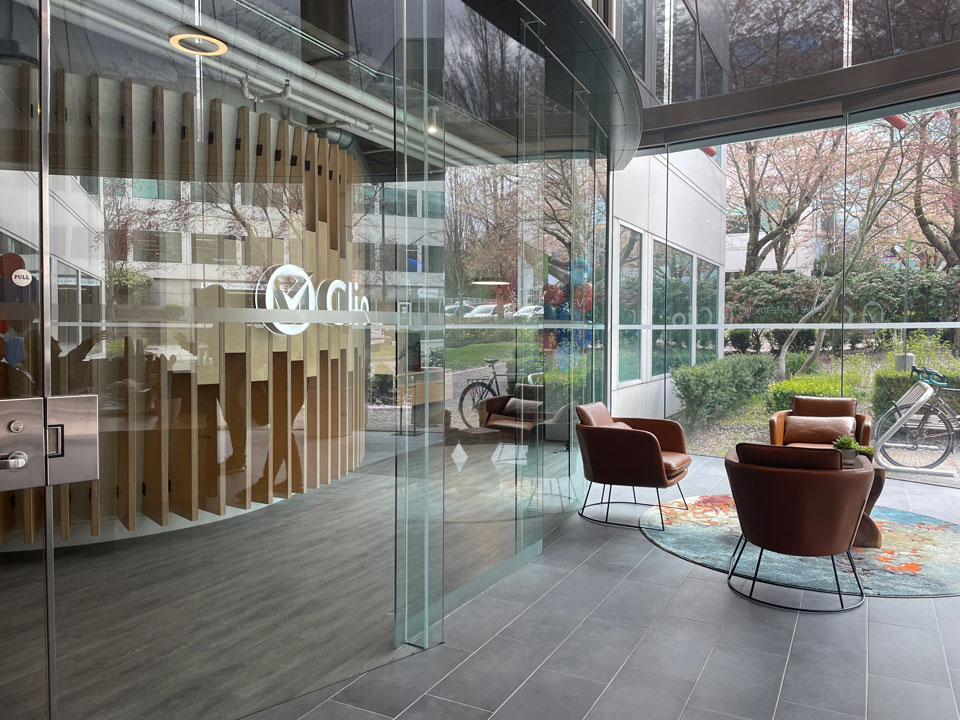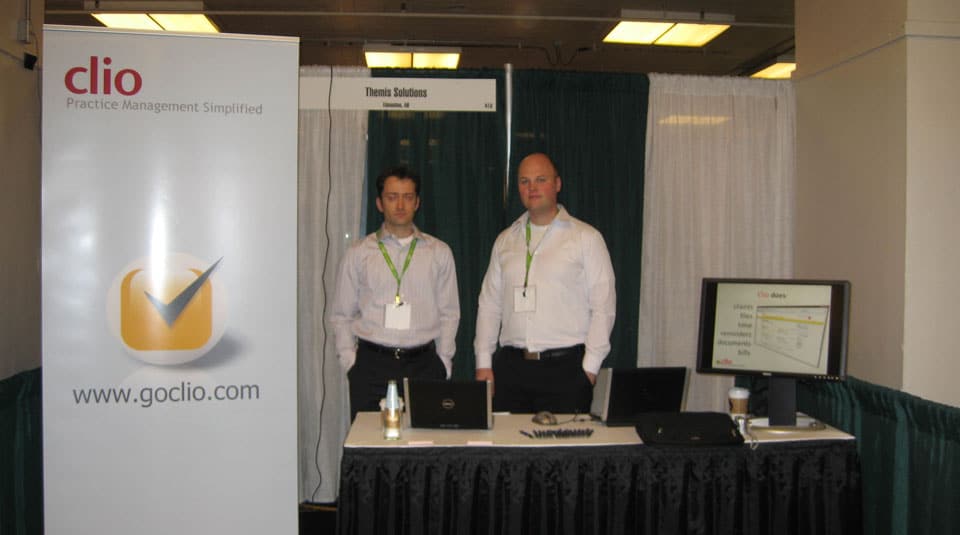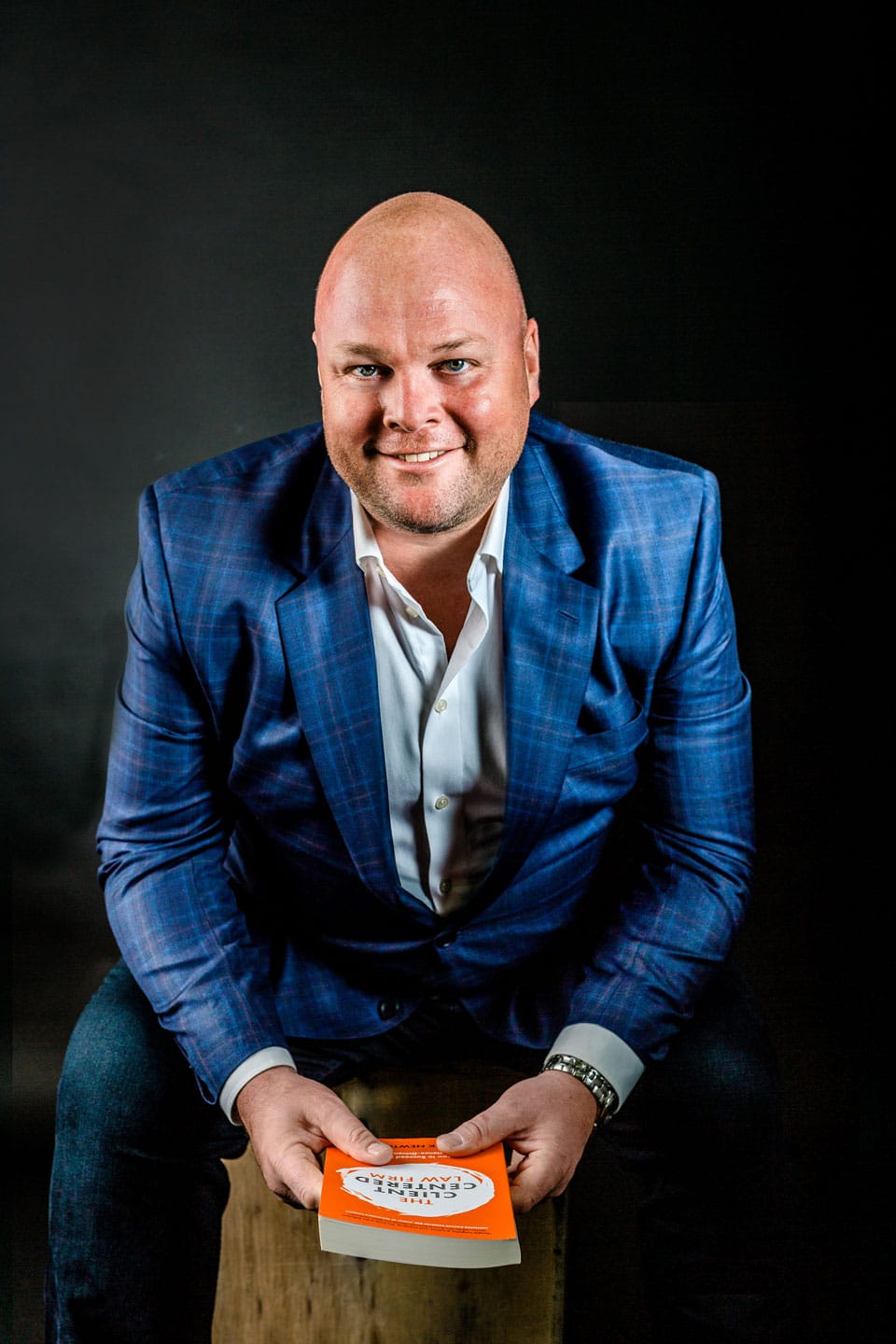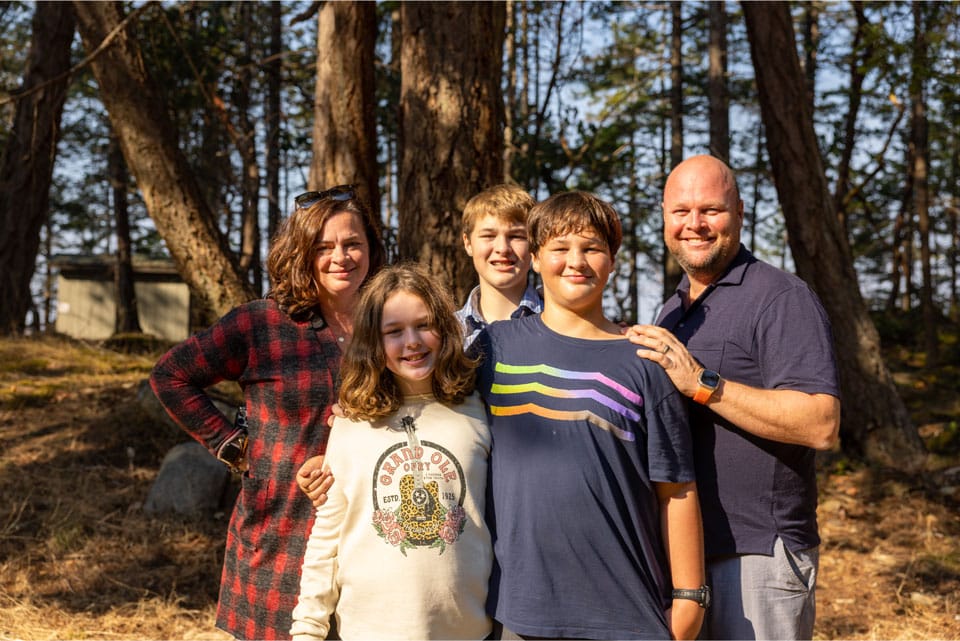Lessons from a CEO who turned recession into opportunity: A Founder’s Journey with Clio

I founded Clio in 2008, just as the global economy was reeling from the Great Recession. I was a young entrepreneur with big dreams and even bigger ambitions, and—despite the economic challenges—I saw an immense opportunity in cloud technology as a transformative innovation. The legal industry was one of the last legacy sectors still operating with paper processes, ripe for disruption with the emergence of the cloud. With what proved to be a great product-market fit, Clio exploded onto the legaltech market in March of 2008.

Fifteen years later, Clio has grown from a startup to a centaur company, with annual recurring revenue exceeding $100 million and a billion-dollar+ valuation.
As I reflect on this 15-year journey, I can’t help but feel a sense of gratitude. And I can’t think of a better time to share some of the lessons I learned along the way that have helped me succeed.
Lesson 1: Recessions are a great time to build a company
Difficult times can be a catalyst for innovation. In mid-2007, there were worrying signals about an economic downturn. The current collapse in the crypto world? That’s what 2007 felt like.
It was a challenging fundraising landscape, and investors were cautious. But we saw a growing need and an opportunity to launch the first cloud-based legal practice management software, and because of this clear need, investors saw the opportunity. Clio was able to unseat established and well-funded competitors during this time and benefited from a pragmatic approach to growth and profitability.
Today’s founders should focus on finding a path for their company that allows them to emerge from the downturn stronger. There’s still a lot of dry powder in the market—don’t be afraid to seek funding.
Lesson 2: Your mission matters
Your mission is the driving force behind everything you do. It’s what gets you out of bed in the morning and keeps you going when things get tough. It’s what helps scrappy, earlier-stage companies recruit some of the best talents away from the likes of Facebook and Google. People want to feel like they’re having an impact on a mission that matters.
At Clio, our mission is to transform the legal experience for all. By focusing on this mission, we have created products that solve real problems for lawyers and their clients. I knew I could make a difference in the legal industry by empowering lawyers to be more productive and successful, ultimately providing better service to their clients.
Lesson 3: Manage your psychology and energy
In the early days of building Clio, I worked all hours of the day to get it off the ground. I thrive on routine, but as anyone starting a business knows, there’s very little variety outside of running the business. I decided to make it a point to get outside every day. Running became a part of my daily routine, and 15 years later, I haven’t missed a day. It’s my daily meditative practice, some time alone to reflect and recharge.
As Marc Andreessen says, founding a startup puts you on an emotional rollercoaster. The highs can be euphoric, leaving you convinced that you will own the world, while the lows can be devastating, leaving you feeling like doom is just weeks away. Care for your physical and mental health and find ways to recharge. Always remember, building a company is both a marathon and a sprint.
Lesson 4: Adopt an infinite mind
I share Simon Sinek’s philosophy of adopting an infinite mindset, of framing the landscape of business-building as an infinite, as opposed to a finite, game. This allows me to focus on the long-term and create a culture of innovation, essential for building a resilient and adaptable company.
By establishing a solid foundation of values and purpose, you create a culture of change that encourages experimentation, risk-taking, and continuous learning. In building Clio, I adopted a mission-driven approach focused on creating value for customers and positively impacting the world. This guided the company’s decisions and actions over the long term.
Lesson 5: Be visionary
Being a visionary leader in the face of a recession meant having a clear and compelling vision for the future. Founders are often able to see a future that is obvious to them but not to others. You need to spend what feels like an unreasonable amount of energy articulating this future state of the world to your team – then, you can step back and let them build it.
I saw the recession as an opportunity for innovation and growth and was willing to take calculated risks. Still, I also needed to inspire and motivate others to work towards that vision.
Develop a deep understanding of the market and the needs of your customers. Work to identify new growth opportunities—and be willing to pivot and adapt to changing circumstances. Those who win successfully reinvent their businesses to thrive in an economy fueled by key disruptors.
Lesson 6: Don’t do it alone
Building a company can be a lonely journey. Surround yourself with people who believe in your mission, values, and vision. You need a team, advisors, mentors, and supporters. In building Clio, I had a talented team and worked to create a culture of collaboration and a network of mentors that have helped me navigate a uniquely exciting journey. Their guidance and support along the way were vital to success.
Lesson 9: Hire the right people
What got you here won’t get you there. As a company evolves beyond its initial successes, hiring the right people with the skills, mindset, and values needed for continued success is essential.
Crucially, you need to hire members of your executive team that have been through the stage of the scaling journey you’re about to go through. If everyone on your team is in the biggest company of their career, you’ll make unforced errors.
At Clio, we invested in building a dynamic workforce that reflects the diversity of our customers. As the needs of our customers and the business have evolved, we’ve brought in the best in their field to continually drive our success.
The result of high-performance hiring? You create a reputation for excellence in your team that drives further interest in new employees who want to be part of the team’s success.

Lesson 10: Trust your team
As an early CEO, it’s important to make it clear you trust your team and you’ll earn their trust in return. I love Nordstrom’s original employee handbook, which simply stated, “Use good judgment in all situations.” Don’t over-policy and over-control your team in response to bad decisions made by one employee; instead, address the issue with that employee. Find the balance between autonomy and oversight, and empower your team members to take ownership of their work and make decisions independently. You’ll free up time and energy to focus on strategic priorities and long-term goals.
Lesson 11: Build a team, not a family
While a family may be based on unconditional love and support, a team is built around shared goals and objectives and is ultimately focused on being a high-performance team that wins. As Reed Hastings famously put it, it’s incumbent on leaders to “hire, develop and cut smartly, so we have stars in every position.” Each team member has a specific role and responsibility and is expected to contribute to the team’s overall success. However, it’s important to note that building a team does not mean sacrificing empathy or compassion. The future of work is very much centered around the individual—inspiring great talent to do the best work of their careers cannot be achieved without considering the whole person. I was focused on creating an environment that is both human and high-performing.
Lesson 7: Lead the conversation
Having a great idea for a product is one thing, but taking a stance on the broader industry perspective is best to insert your company as a solution for the market. At the time of Clio’s founding, there was a significant industry discussion taking place around the security of cloud technology when it came to safeguarding sensitive legal information, and we leaned into that conversation.
Forming relationships with industry media, and taking a stance on questions people care about, helps to develop your profile as a leader in the space and gives you a better understanding of what your customers care about.
Lesson 8: Whoever gets closest to the customer wins
Focus on customers’ needs and build products that solve their problems. I thrived on building a customer-centered culture at Clio. We got close to our customers, listened to their feedback, and acted on it. The closer you get to your customers, the better you can serve them.
Lesson 12: Define your values
Your core values define how you hire, fire, and promote. Dunbar’s number theory suggests a cognitive limit to the number of meaningful social relationships a person can maintain, which is commonly estimated to be around 150. In defining a company’s values, this theory suggests that a company should focus on a smaller set of core values that are easy to remember and apply in everyday decision-making.
At Clio, our company culture is built on values that guide everything we do. And these are not just words posted on a wall. We incorporate our values into everything we do to ensure they are an active part of our everyday work.
Lesson 13: Communicate more as you grow
Clearly defined values are essential for building a strong culture, but even more important is ensuring the values remain meaningful and authentic as the company scales. Communication became more critical as we grew from a team of two to over 900 employees. As a leader, you need to reiterate the same message repeatedly, to the point you feel exhausted reiterating the same point (this exhaustion is the approximate indicator you’ve reiterated the message enough!)
Clearly communicating the company’s goals and how each employee’s contributions ladder to those goals is equally important. At Clio, we structure our strategic planning process around OKRs (Objectives and Key Results) and ask individual departments and teams to craft OKRs that ladder into the company-level OKRs. Throughout the year, we share continuous updates on progress against our OKRs, including successes and challenges, and openly discuss any roadblocks or obstacles preventing progress. This fosters a culture of transparency and open communication, ensuring every employee is informed, empowered, and invested in the company’s success.
Lesson 14: Luck Is What Happens When Preparation Meets Opportunity
What happens when a potentially game-changing email ends up in your spam folder? It may sound like a joke, but this was my fate. Regularly checking your spam folder can mean the difference between missing out on a crucial investment opportunity and securing the funding you need to take your startup to the next level. Always be prepared for an opportunity to present itself, and expect to encounter that opportunity in the least likely of places.

Lesson 15: You can be a great partner, parent, and founder
Ultimately, life is about more than work. It’s easy to become consumed by the demands of running a business, but there are other important aspects of life. Being a founder, great partner, and parent will require a delicate balance of time management, prioritization, and discipline. I learned to intentionally dedicate time to work, personal life, and self-care.
I am incredibly proud of what we have accomplished, yet I know we still have a long way to go. Our sights are set on building an enduring, 100-year legacy company that will continue to innovate and make a difference in the world.
Written by Jack Newton.
Have you read?
How Pricing Can Drive Your Business by Mark Stiving.
Why Staying Active on LinkedIn Benefits Your Business — and How to Do It by Scott Scully.
Local Online Marketing Tips that Work for All Businesses by Lisa Nichols-Jell.
Book Review: Understanding Organizations . . . Finally! Structuring in Sevens, by Henry Mintzberg.
5 Elements for Successfully Closing Your Next Investor Pitch by Ashish Arora.
Bring the best of the CEOWORLD magazine's global journalism to audiences in the United States and around the world. - Add CEOWORLD magazine to your Google News feed.
Follow CEOWORLD magazine headlines on: Google News, LinkedIn, Twitter, and Facebook.
Copyright 2025 The CEOWORLD magazine. All rights reserved. This material (and any extract from it) must not be copied, redistributed or placed on any website, without CEOWORLD magazine' prior written consent. For media queries, please contact: info@ceoworld.biz








